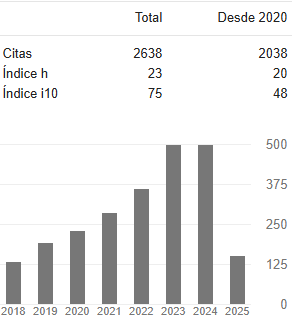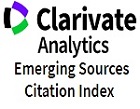Recreational mathematics laboratory for the development of mathematical logical thinking
DOI:
https://doi.org/10.31908/19098367.835Keywords:
Didactics, logic, ludic, logical thinking, strategies, recreational math, basic competences, logical reasoning, games.Abstract
The recreational math lab is an initiative of the mathematics department of Santa Sofia school in the municipality of
Dosquebradas, in this year it has tried to generate a space where the ludic strategies applied in the development of the logical, critical and autonomous thinking processes are reflected and re - thought. The recreational metodology looks for the didactical application of the traditional games such as: tangram, magical squares, origami, pentomimo, sudoku, problems, logical riddles and chess, enhancing intellectual operations. Based on an educational intervention that facilitates the scientific knowledge, framed on an active pedagogy, meaningful and participant.
Downloads
References
AUSUBEL, David P. Psicología educativa. Un punto de vista cognoscitivo. México: Trillas, 1998.
CANDAU, Debbie. Instituto de Tecnología en Informática y otros. INTEL EDUCAR PARA EL FUTURO. Ministerio de Educación Nacional de Colombia y otros.
CARDONA, Janneth Ivonne. Las Ludotecas en el contexto colombiano. Más allá del entretenimiento. Revista Internacional MAGISTERIO Educación y Pedagogía. No. 19. página 21. Febrero – Marzo 2006
CSIKSZENTMIHALYI, Mihalyi. Creatividad. El fluir de la psicología del descubrimiento y la investigación. Barcelona: Piados,1998.
DE GUZMÁN, Miguel. JUEGOS MATEMÁTICOS EN LA ENSEÑANZA. Facultad de matemáticas. Universidad Complutense de Madrid.
DÍAZ M., Héctor Ángel. Lúdica, Conflicto y Realidad. CENCAD Editor. Bogotá. 2002.
FERNÁNDEZ Bravo, José Antonio. HÁBLAME CON GRACIA DE LÓGICA Y MATEMÁTICA. Centro universitario de Enseñanza Superior “Don Bosco” Madrid ESPAÑA.
JIMÉNEZ Vélez, Carlos Alberto. Neuropedagogía, Lúdica y Competencias. Aula Abierta Magisterio. Cooperativa Editorial Magisterio. Bogotá. 2003.
JIMÉNEZ Vélez, Carlos Alberto. Pedagogía de la Creatividad y de la Lúdica. Emociones, inteligencia y habilidades secretas. Mesa Redonda Magisterio. Cooperativa Editorial Magisterio. Santa Fe de Bogotá. 1998.
JIMÉNEZ Vélez, Carlos Alberto. Pedagogía Lúdica. Editorial Kinesis.
JUKOVSKAIA, R.I. LA EDUCACIÓN DEL NIÑO EN EL JUEGO. Editorial Pueblo y Educación.1978. Playa, Ciudad de La Habana. República de Cuba.
Ley 115 de 1994. Artículo 5, Fines de la Educación; Artículo 13. Objetivos comunes de todos los niveles; Artículo 14. Enseñanza obligatoria.
Ley 715 de 1994. Capítulo II. Competencias de las Entidades Territoriales. 6.2.1., 6.2.4., 6.2.9. (Mejoramiento y calidad de la Educación)
MINISTERIO DE EDUCACIÓN NACIONAL. Articulación de la educación con el mundo productivo. La formación en Competencias Laborales. Documento de Política, Bogotá, Colombia 2003
MINISTERIO DE EDUCACIÓN NACIONAL. Lineamientos Curriculares. Área de Matemáticas. Editorial Libros y libros S.A.
MONTENEGRO, Ignacio Abdón. Evaluemos Competencias Matemáticas. Cooperativa Editorial Magisterio.
NÉRICI, Imídeo G. Hacia Una Didáctica General Dinámica. Editorial Kapelusz S.A. Buenos Aires. Argentina. 1969.
ONTORIA, A. y otros. MAPAS CONCEPTUALES. Una Técnica para Aprender.. Narcea, S.A. de ediciones 1996. página 9
VARELA Varela, Aida. Editorial Revista Internacional MAGISTERIO Educación y Pedagogía. No. 19. Febrero – Marzo 2006.
WAICHMAN, Pablo. TIEMPO LIBRE Y RECREACIÓN. Un Desafío Pedagógico. Colección Tiempo Libre. Editorial Kinesis. Primera edición. Armenia – Colombia. 2000.
Downloads
Published
Issue
Section
License
Copyright (c) 2019 Entre ciencia e ingeniería

This work is licensed under a Creative Commons Attribution-NonCommercial 4.0 International License.



















